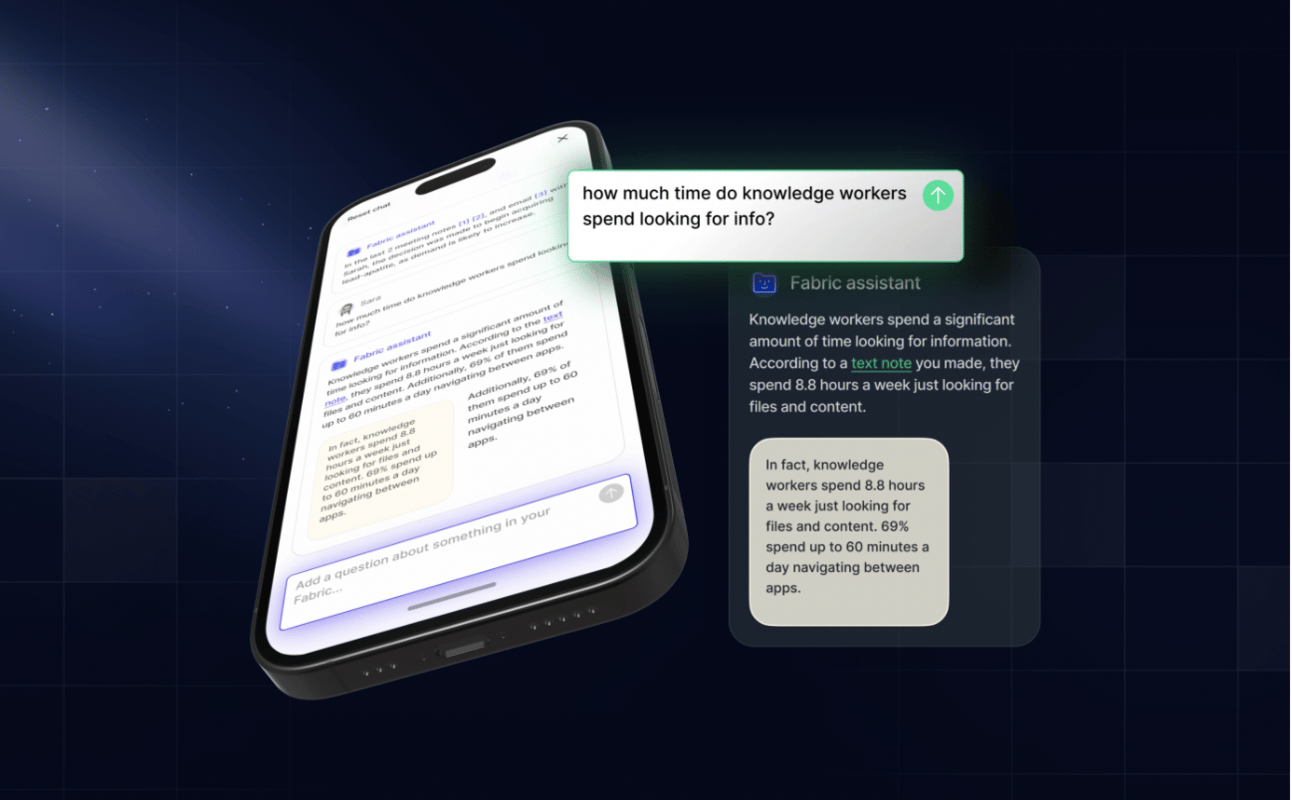
Welcome, AI Enthusiasts.
OpenAI's first developer event, OpenAI DevDay, featured significant announcements
Fabric is a service powered by artificial intelligence that serves as a unified platform for managing diverse kinds of data, such as texts, pictures, bookmarks, and links to online content.
In today’s issue:
🤖 Highlights from OpenAI's Inaugural Developer Event
🦾 Fabric Unveils an AI-Powered Digital Hub for Centralized Information Management
🛠️ 3 New AI tools
💻 Custom prompts ChatGPT and DALL-E 3
🤖 3 Quick AI updates
Read time: 4 minutes.
LATEST HIGHLIGHTS

Image source: DALL-E 3
To recap: OpenAI's first developer event, OpenAI DevDay, featured significant announcements, including the introduction of GPT-4 Turbo, user-created GPTs, the GPT Store, Assistants API, DALL-E 3 API, new text-to-speech APIs, and a Copyright Shield program to protect businesses from copyright claims. These announcements highlight OpenAI's continued innovation in AI technology and its dedication to providing a wide range of tools and services to developers and users.
The details:
ChatGPT User Milestone: Over 100 million weekly users of ChatGPT and more than 2 million developers utilizing its API.
GPT-4 Turbo: An improved GPT-4 model with expanded capabilities, including text and image understanding, featuring a larger context window and updated knowledge.
User-Created GPTs: Users can create customized GPT models without coding knowledge, including enterprise-specific GPTs.
GPT Store: OpenAI plans to launch a platform where users can publish their AI bots.
Assistants API: Developers can create agent-like experiences, such as coding assistants or vacation planners, using the Assistants API.
DALL-E 3 API: OpenAI's text-to-image model is now available via API with various resolution options.
New Text-to-Speech APIs: The Audio API provides access to six preset voices.
Copyright Shield Program: OpenAI will cover legal fees for businesses facing IP lawsuits related to content generated using its tools.
Here is the key takeaway: The company continues to push the boundaries of AI technology, offering enhanced models like GPT-4 Turbo, empowering users to create their own AI models, providing a platform for AI bot publishing, and expanding its API offerings. Additionally, OpenAI is committed to supporting businesses by introducing the Copyright Shield program to protect against copyright claims related to AI-generated content. These announcements highlight OpenAI's commitment to democratizing AI and providing innovative tools and services to developers and users.
FABRIC
🦾 Fabric Unveils an AI-Powered Digital Hub for Centralized Information Management

Image source: Fabric
In Summary: Fabric, a startup founded in 2022, has launched an AI-powered service that acts as a centralized hub for organizing various types of information, including documents, images, bookmarks, and internet content links. Users can upload files, add links, or compose text notes within Fabric, and its AI assistant, Fabric Assistant, helps users locate information using natural language queries. The platform supports collaboration through shared spaces, making it a versatile tool for researchers, creatives, and power users. Fabric offers multi-tier pricing plans, ranging from $6 per month for 500GB to $50 per month for 4TB, and aims to connect various information sources seamlessly while prioritizing user organization and accessibility.
Key points:
AI-Powered Information Hub: Fabric is an AI-powered service designed to act as a centralized hub for organizing various types of information, including documents, images, bookmarks, and internet content links.
Versatile Information Management: Users can upload files, add links, or compose text notes directly within Fabric's interface. The platform offers a built-in search feature and an AI assistant, Fabric Assistant, to help users locate information using natural language queries.
Collaboration Features: Fabric allows users to create dedicated shared spaces for collaboration. These shared spaces can be used for tasks like collaborating on documents, planning trips, gathering inspiration, and more.
Flexible Accessibility: Fabric can be accessed through the web, as a browser extension, desktop app, or native mobile app. It aims to serve prosumers, including researchers, creatives, and power users who deal with diverse types of information and need an organized and accessible workspace.
Our thoughts: Fabric's AI-powered approach to centralizing and organizing information, coupled with its versatile features and emphasis on collaboration, could prove valuable in addressing the challenges of data overload in the modern workplace. However, it will face competition from established productivity tools, and its success will depend on its ability to offer a seamless user experience and efficient integration with various data sources.
TRENDING TECHS
🧩 GO PLATFORM- Talent acquisition, Analytics, skills assessment
䷀ Taskade-Build a second brain for your team. Chat, organize, and get work done in one unified workspace.
♲ replai- Create meaningful replies 10x faster in 2 minutes with AI
AI DOJO
Architectural Evolution:
Prompt: "Create an image showing the evolution of architectural styles from ancient to modern times."
DALL-E 3
Concept Explainer:
Prompt: "Generate an image that visually explains the concept of photosynthesis to a 5th-grade student."
QUICK BYTES
Microsoft is updating its startup program to provide select startups with free access to Nvidia-based GPU clusters on Azure for AI development, starting with Y Combinator companies in a private preview. The initiative aims to lower the entry barriers for training and deploying AI models and is part of Microsoft's broader strategy to attract startups to its Azure platform, while also planning to extend these benefits beyond Y Combinator through collaborations with M12 and other investors.
Figma is enhancing its FigJam whiteboard tool, used for collaborative design and project organization, with three new AI features aimed at simplifying the start and organization of projects. The update includes generative AI to help users create boards from prompts, sort sticky notes thematically, and automatically generate summaries from the notes, leveraging OpenAI's language models with safety features to prevent inappropriate content.
AI, while perceived as a formidable force in popular culture, is not infallible and can be easily deceived, leading to both humorous and serious outcomes. The future of AI's reliability hinges on our ability to refine its development to prevent deception, as showcased by instances where AI like Cicero and ChatGPT have tricked humans, and AI detection tools have been fooled by minor text edits.
SPONSOR US
🦾 Get your product in front of AI enthusiasts
THAT’S A WRAP
